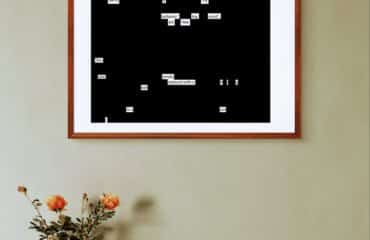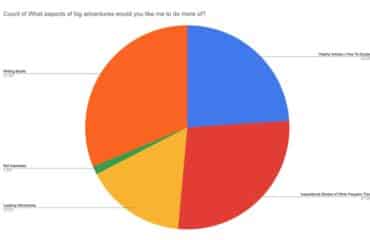|
|
|
|
|
|
|
|
|
|
|
|
|
|
|
|
|
|
|
|
|
|
|
|
|
|
|
|
|
|
|
|
|
|
|
|
|
|
|
|
|
|
|
|
|
|
|
|
|
|
|
|
|
|
|
|
|
|
|
|
 Not Very Glowing Book Reviews – Blackout Art
Sometimes, as an author, you receive glowing book reviews. That is a lovely feeling. Sometimes, as an author, you receive not very glowing book reviews. That is a less lovely feeling. I have been having some fun with my #notveryglowingbookreviews, […]...
Not Very Glowing Book Reviews – Blackout Art
Sometimes, as an author, you receive glowing book reviews. That is a lovely feeling. Sometimes, as an author, you receive not very glowing book reviews. That is a less lovely feeling. I have been having some fun with my #notveryglowingbookreviews, […]...
 10500 Days (and almost as many words)
“My thoughts first turned to adventure 10,500 days ago today. The idea of adventure for me at first was simple and uncomplicated. It was the prospect of excitement, fun, and novelty that were pulling me forward, and the push of […]...
10500 Days (and almost as many words)
“My thoughts first turned to adventure 10,500 days ago today. The idea of adventure for me at first was simple and uncomplicated. It was the prospect of excitement, fun, and novelty that were pulling me forward, and the push of […]...
 Survey results: What direction shall I go next?
I recently asked the wonderful readers of my newsletter for a bit of advice on what things I should focus my attention on for the next few months and years. I thought I’d share the results here, partly to show […]...
Survey results: What direction shall I go next?
I recently asked the wonderful readers of my newsletter for a bit of advice on what things I should focus my attention on for the next few months and years. I thought I’d share the results here, partly to show […]...
HTML tags you can use:
<a href="" title=""> <abbr title=""> <acronym title=""> <b> <blockquote cite=""> <cite> <code> <del datetime=""> <em> <i> <q cite=""> <s> <strike> <strong>
Thank you to the many people who have kindly "bought me a coffee" for just £2.50 as encouragement to keep this blog going. "Yes, I too would like to donate a couple of pounds to this site..!"
© Copyright 2012 – 2021 Alastair Humphreys. All rights reserved.
Site design by JSummerton • Built by Steve Perry Creative
Great Article! Microsoft Word is one of the oldest word processors out there, and it is still widely used for writing books. has always been a major tool in my career — a tool that I use each and every day.